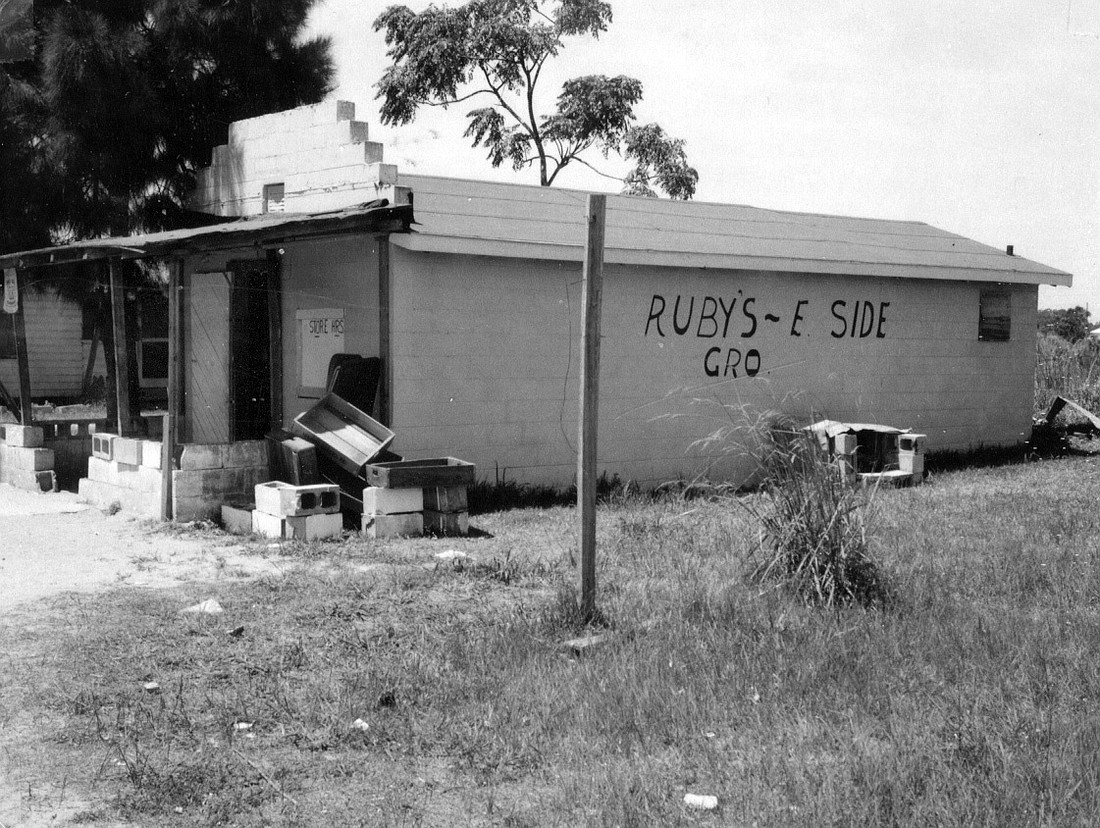- April 19, 2024
-
-
Loading

Loading

Kosta Karatzas and Vickie Oldham have little in common — except for their interest in Newtown.
Karatzas is a Greek citizen pursuing a Ph.D. in American History from the University of Zaragoza in Spain.
Oldham is a Sarasota native. She earned a degree in journalism, and after careers in TV news and public relations, found herself back in Sarasota leading a team of researchers documenting Newtown’s stories.
Oldham’s project was the first part of the city’s multiphase effort to preserve Newtown’s history. The project began in 2015, after city officials solicited applicants to conduct a comprehensive study documenting the neighborhood’s past.
It resulted in nearly 400 pages of historical information, collected using everything from personal interviews to a plat-by-plat study of the original neighborhood. For Oldham, the text — its corners worn from frequent use — is a tangible explanation of her past.
But for Karatzas, it’s a resource for future research.
He’s spending his summer in Sarasota conducting preliminary research for an article he plans to write documenting the history of Sarasota, particularly the history of its predominantly African-American neighborhoods.
He stumbled upon a line about Newtown during his extensive research of American history. It piqued his interest, and eventually, the lines became pages as he sought more information.
He spends much of his time in Sarasota County’s Historical Resources Library collecting data to bring back to Spain. He unloads boxes of newspaper clippings, placing them in chronological order as he goes. To the right of his growing pile of worn paper sits a crisp copy of Oldham’s report on Newtown’s history.
Karatzas’ and Oldham’s parallel interest in the Newtown happened by coincidence. They’ve never met, but their mission is the same — to tell the stories of Newtown and spur a dialogue that may be overdue.
Though Newtown is the primary historically black neighborhood in Sarasota today, it wasn’t the first.
When the city was originally platted, Sarasota’s African-American population lived in Overtown—now known as the Rosemary District. But Overtown residents began moving north in 1914 as downtown began to expand.
“What African-Americans did is bond together, form a village, stress the importance of education, self-reliance and having a strong faith,” Oldham said.
But even as she recites the past, she can’t help but plan for the future.
More than 100 years after Overtown’s residents moved north, very little of the neighborhood is left. Oldham hopes the city’s project will prevent Newtown from the same fate. She hopes her collection of stories will inspire those who might have left to come back and invest in their village.
“By preserving the past, people start taking pride in the community again,” Oldham sad.
With phase 1 of Newtown’s conservation project complete, she’s hoping to expose new audiences to Newtown’s history during phase 2. She plans to create a website and place 15 markers in front of key landmarks in Newtown, such as Newtown’s business district and its historic boundary.
Oldham’s primary purpose is to document her community’s local history, but she understands Newtown’s story isn’t unique.
“You can see that this is a microcosm of the history of black communities throughout the United States,” Oldham said.
Karatzas feels compelled to tell the stories from within that microcosm.
Karatzas often gets asked why he doesn’t study Greek history. He says Greek history tells him where civilization has been, but American history tells him where civilization is going. He considers himself an international citizen, holding multiple degrees from Greek, Dutch and Spanish universities and is impressed by what he sees as the United States’ capacity for dialogue between factions.
“Of course there are problems,” Karatzas said, “But they are more experienced in how to receive somebody from other cultures.”
Though the situation is not identical, Karatzas believes Newtown’s story has international resonance as Europe grapples with a sudden influx of refugees and hopes his work will contribute to a conversation of acceptance. He hopes by highlighting African-Americans’ fight for equality, Europe can avoid making the same mistakes.
“Hopefully, if they see this outcome of the past, they won’t repeat it,” Karatzas said.
Meanwhile, Oldham has a lot of plans for her own project and doesn’t see it ending soon.
“What I can’t do in my lifetime, someone else will pick it up...Yeah, someone else will pick it up,” Oldham said.